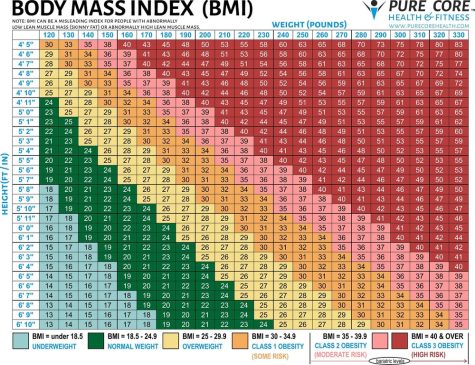Is the Body Mass Index Reliable?
BMI is used commonly amongst the health industry, but is it really that reliable?

Picture this.
You’re a hard-working student-athlete, you practice about two to three hours a day, five to six days a week. It is required you make a visit to the doctor’s office at least once a year. You sit with your parents in the waiting area and finally get called in by a nurse. The nurse weighs you and measures your height, later on, you are told that according to the BMI, you are overweight. You are confused. “I practice every day, how could I be overweight?” you think to yourself. The doctor tells you to make sure you complete thirty minutes of exercise a day and sends you home with an FDA-approved nutrition pamphlet.
Sounds strange, doesn’t it? Well, unfortunately, this is a common occurrence for people of all age groups, and it’s all because of the BMI or body mass index.
According to the Centers for Disease Control (CDC), the BMI is a measurement of a person’s health using the person’s weight in kilograms and dividing it by the square of their height in meters. After dividing, you are left with a number, and use it to determine your body mass on the index. The graph has different colors to determine your health. For example, the lightest green is the underweight category, and the darker green is a healthy weight, while the yellows, oranges, and reds represent the overweight categories.
You may be asking, “Why is this index not a good indicator of health?” or something along those lines. Well, BMI only bases its scaling on weight, and by using weight to determine someone’s health – leaving out outliers like muscle mass. Muscle weighs so much more than body fat, and because BMI uses the individual’s full weight there is no way to discriminate the body fat from the muscle. On top of this fact, the BMI doesn’t take into account age, race, gender, or any other demographics. So, even though the BMI is used everywhere, it’s highly unreliable.
Now, why is the BMI still used? Well, according to the CDC, “BMI is a simple, inexpensive, and noninvasive surrogate measure of body fat. In contrast to other methods, BMI relies solely on height and weight, and with access to the proper equipment, individuals can have their BMI routinely measured and calculated with reasonable accuracy.” This index is so easy to compute that doctors everywhere continue to use it. However, the BMI is the better option compared to its substitutes such as underwater weighing and dual-energy x-ray absorptiometry. Both substitutes are expensive and very time-consuming, making them less desirable than the BMI, which is quick, easy, and inexpensive.
Overall, the BMI can be very beneficial to society by making costs on civilians lower and creating fast and easy calculations so that people don’t need to wait to determine their health. So, even though this index is unreliable, and not the most desirable calculation of health, it is the most efficient, and at the end of the day, everyone loves efficiency.
To view, more about the body mass index check out www.cdc.gov, and to find your own BMI check out this BMI calculator.
